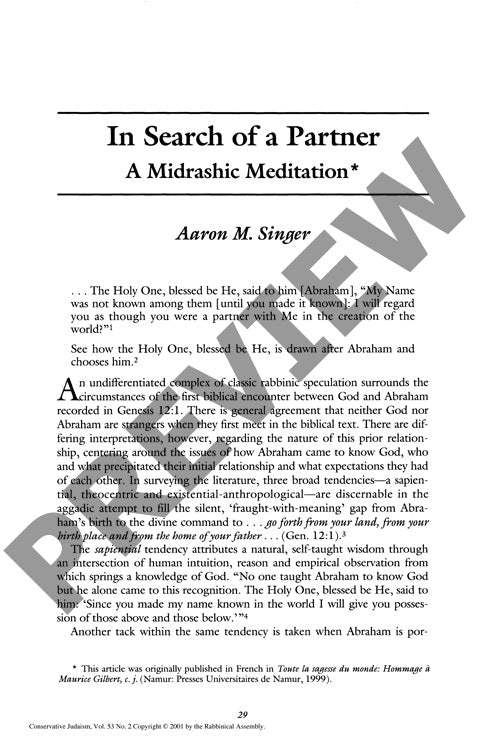In Search of a Partner a Midrashic Medit
Couldn't load pickup availability
How did ancient rabbis reimagine humanity's first encounter with the divine? Classical rabbinic interpretations of Abraham's call in Genesis 12:1 reveal a surprising theological vision: God and Abraham as mutual partners rather than sovereign and subject. Through analysis of Hebrew and Aramaic texts in Genesis Rabbah and other midrashic sources, three distinct interpretive approaches emerge - sapiential, theocentric, and existential-anthropological. While sapiential readings present Abraham discovering God through rational observation, and theocentric interpretations emphasize divine initiative, the existential-anthropological tradition envisions a more radical relationship. Two pivotal midrashic texts capture this partnership dynamic: Abraham confronting God about a world "in flames," and Abraham himself becoming a source of divine guidance in dark alleyways. These interpretations suggest a vulnerable deity who depends on human cooperation to affect worldly change. Close textual analysis and comparison with biblical sources reveals how rabbinic commentators filled scriptural gaps while advancing a theology that challenged conventional hierarchical models of divine-human relations. This midrashic reimagining demonstrates how ancient interpreters envisioned humans as essential partners with God in the ongoing work of moral transformation and cosmic repair.

More Information
-
Physical Description
-
Publication Information
Published 2001
ISBN
-
Publication Credits
Aaron Singer

